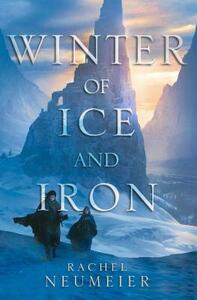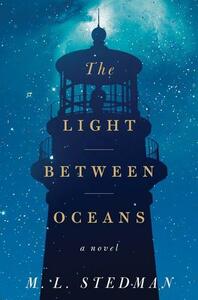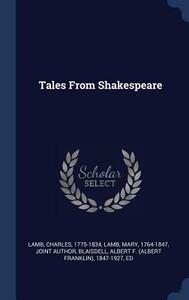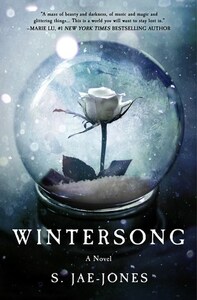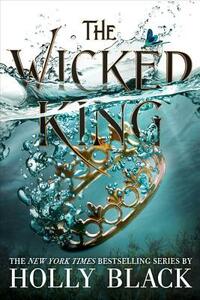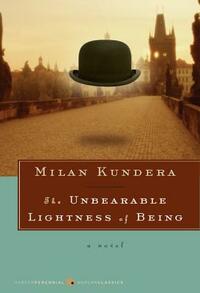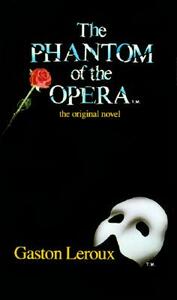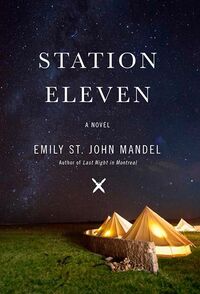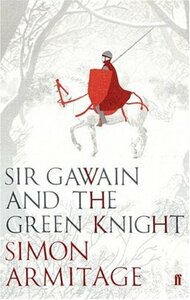Take a photo of a barcode or cover
theinquisitxor's Reviews (804)
I was looking for wintery fantasy books to read over my break, and I sure found one! This is a very large, high fantasy with a strong set of characters, solid world building and magic system. However, despite all that, it was just okay. I really liked the one main character, Kehera, but the Wolf Duke was just...meh. The winter storms, ice dragons and soaring mountains gave this book a really good setting. The magic system was really interesting, unique and original. I liked many of the characters (I liked some of the lesser characters more than some of the main ones.) The plot of the story also had a strong foundation and unique delivery. Despite all of these good things, I never felt very invested in the story as I should of been. Based off of the descriptions of the characters, and an overview of the plot I would have thought that this would be a superb book, but it just fell a bit flat to me. I'm not sure what made it exactly so either.
While looking at other reviews, people either seemed to love or hate it. I can see both sides, and definitely see what people find so problematic about it. As I said before, Kehera is my favorite character, but it was frustrating how even though she was supposed to be the "heir" she was not properly trained, and she was introduced to us during a big battle in which she was sitting in safety doing needle point. She also tries to escape several times to get away from situations she is in and fails miserably every time. The other main character, the Wolf Duke was.. not my favorite. I understand that he is supposed to be this 'cruel' and 'harsh' man who gets thawed by the woman, trope, but it all fell a little flat for me.
I have not read anything else of Rachel Neumeier, but I think that I would enjoy her other works better than this one. Overall I thought it was okay, and I defiantly got my craving for a wintery high fantasy resolved.
While looking at other reviews, people either seemed to love or hate it. I can see both sides, and definitely see what people find so problematic about it. As I said before, Kehera is my favorite character, but it was frustrating how even though she was supposed to be the "heir" she was not properly trained, and she was introduced to us during a big battle in which she was sitting in safety doing needle point. She also tries to escape several times to get away from situations she is in and fails miserably every time. The other main character, the Wolf Duke was.. not my favorite. I understand that he is supposed to be this 'cruel' and 'harsh' man who gets thawed by the woman, trope, but it all fell a little flat for me.
I have not read anything else of Rachel Neumeier, but I think that I would enjoy her other works better than this one. Overall I thought it was okay, and I defiantly got my craving for a wintery high fantasy resolved.
I was not 100% sure what to expect from this book of Shakespeare retellings for children but I was pleasantly surprised. I did not read every single story, but rather focused on the ones that I know best, primary from studying several plays this past semester. Published in 1807, by Mary and Charles Lamb, this contains twenty prose retellings of the plays while still maintaining Shakespeare's elegant and poetic dialogue.
The edition of this book that I have is the Barns and Noble Fall River Press which is gorgeously illustrated. Most of the illustrations are done by Arthur Rackham, an illustrator from the early 20th century. I love early 20th century pen and ink drawings, and his work is totally worth looking up!
Mary Lamb wrote most of the stories ( all the the comedies and Romances) while Charles only wrote the six tragedies. Mary was not at first accredited with the book, and still today, most people only know of Charles Lamb. In the introduction, the book describes how Charles and Mary grew up near theater and probably saw many Shakespeare plays preformed. One thing I picked up on while reading was the sibling's interpretation of certain characters, probably due to how there were portrayed on stage during this time.
The most startling example was in The Tempest. Modern interpretation often makes this play a commentary on Colonialism- as per the dynamic between Prospero and Caliban. In many modern adaptations, Caliban is usually portrayed as having darker skin, and being very human (not typically in a 'savage' way). In Charles and Mary Lamb's version, Caliban is a grotesque, uncouth, ape-like creature. Which left me wondering if that was how stage productions were portraying Caliban during this time.
Shakespeare's plays are often confusing, filled with magic, twins, people pretending to be who they are not, and many sub-plots that children could get confused from. I think that C&M did a good job of telling the story in a way that keeps most of these elements, while still remaining a story. It is far from being a plot-summary. However, some characters were toned-down (I'm looking you, Prospero and Iago) and some sub-plots were not mentioned. But I understand that since this is written for children, not everything can be included- most on stage productions make many cuts to scenes and have their own interpretations. Which makes me very content with this book.
The edition of this book that I have is the Barns and Noble Fall River Press which is gorgeously illustrated. Most of the illustrations are done by Arthur Rackham, an illustrator from the early 20th century. I love early 20th century pen and ink drawings, and his work is totally worth looking up!
Mary Lamb wrote most of the stories ( all the the comedies and Romances) while Charles only wrote the six tragedies. Mary was not at first accredited with the book, and still today, most people only know of Charles Lamb. In the introduction, the book describes how Charles and Mary grew up near theater and probably saw many Shakespeare plays preformed. One thing I picked up on while reading was the sibling's interpretation of certain characters, probably due to how there were portrayed on stage during this time.
The most startling example was in The Tempest. Modern interpretation often makes this play a commentary on Colonialism- as per the dynamic between Prospero and Caliban. In many modern adaptations, Caliban is usually portrayed as having darker skin, and being very human (not typically in a 'savage' way). In Charles and Mary Lamb's version, Caliban is a grotesque, uncouth, ape-like creature. Which left me wondering if that was how stage productions were portraying Caliban during this time.
Shakespeare's plays are often confusing, filled with magic, twins, people pretending to be who they are not, and many sub-plots that children could get confused from. I think that C&M did a good job of telling the story in a way that keeps most of these elements, while still remaining a story. It is far from being a plot-summary. However, some characters were toned-down (I'm looking you, Prospero and Iago) and some sub-plots were not mentioned. But I understand that since this is written for children, not everything can be included- most on stage productions make many cuts to scenes and have their own interpretations. Which makes me very content with this book.
“There is music in your soul. A wild and untamed sort
of music that speaks to me. It defies all the rules and laws you humans set upon it. It grows from
inside you, and I have a wish to set that music free.”
Oh, how I love, love this book. I first read it last January, and immediately fell in love with almost every aspect of the story. The sequel had just been released, and I quickly read that as well. This book contains so many of my favorite tropes and themes. It contains themes from Labyrinth, La Belle et la Béte, Phantom of the Opera, Hades and Persephone and The Little Mermaid. At its base, it is a Labyrinth retelling, but contains so much more. The first half of the book is more like Labyrinth, as our protagonist (a nineteen year old Bavarian girl growing up in the 19th century) goes to retrieve her sister who has been taken by the Goblin King to be his bride. And then it changes to be a different sort of story in the second half of the book.
The mythology that Jae-Jones spins is incredible.
The Goblin King. The Underground. Der Erlkönig.
The music. That is probably my favorite part. I am a classical musician, I love music, it is what I do and I could not imagine my life without it. I have yet to read a book that describes music in the way this book does, or describes the impact of music on the characters. Or contains so many musical references. Der Erlkönig is a Goethe poem that was put to music by Schubert (I recommend you listen to it). There are too many references to count, from chapter titles, such as Death and the Maiden (a string quartet piece also of Schubert, and one of my favorites) to just general music terms used in the writing. I eat these parts of the book up. I wish there were more novels about classical music and musicians (we really are interesting people, I promise).
Is is definitely more of a character driven book. Elisabeth, or Liesel is such a complex character and she is annoying and frustrating sometimes. While there is plenty of romance, this book (and its sequel) is mostly about Elisabeth and her growth. She begins the book as a poor innkeepers daughter who composes music in secret and bears the responsibility of her siblings. She never got any of the attention she deserved and does not have a very high opinion of herself. Over the course of this book she grows so much. She begins to see herself as a musician and embraces her honesty and femininity.
Then there is the Goblin King. He is many faces at once. He is the Lord of Mischief, der Erlkönig and the nameless young man all at the same time. He becomes much more than the mischievous anti-hero of the first half. We learn that he his just as trapped in the Underground as Liesel is. He remembers his past life, but had to give up his identity.
S. Jae-Jone's writing is fabulous. It is full of dark romanticism where nothing is as it seems. It is also dense, and slow-paced. The first half is darker- even though much of it takes place above ground. Liesel's first visit to the Underground to rescue her sister is full of dark twisting tunnels, terrifying creatures and deception. The Lorelei and the Underground lake are also added themes from other works and myths. This entire novel is a fairy tale of magic, darkness, dreams, love and music. It is such a good book to read in January, and I will probably continue to re-read it in years to come.
of music that speaks to me. It defies all the rules and laws you humans set upon it. It grows from
inside you, and I have a wish to set that music free.”
Oh, how I love, love this book. I first read it last January, and immediately fell in love with almost every aspect of the story. The sequel had just been released, and I quickly read that as well. This book contains so many of my favorite tropes and themes. It contains themes from Labyrinth, La Belle et la Béte, Phantom of the Opera, Hades and Persephone and The Little Mermaid. At its base, it is a Labyrinth retelling, but contains so much more. The first half of the book is more like Labyrinth, as our protagonist (a nineteen year old Bavarian girl growing up in the 19th century) goes to retrieve her sister who has been taken by the Goblin King to be his bride. And then it changes to be a different sort of story in the second half of the book.
The mythology that Jae-Jones spins is incredible.
The Goblin King. The Underground. Der Erlkönig.
The music. That is probably my favorite part. I am a classical musician, I love music, it is what I do and I could not imagine my life without it. I have yet to read a book that describes music in the way this book does, or describes the impact of music on the characters. Or contains so many musical references. Der Erlkönig is a Goethe poem that was put to music by Schubert (I recommend you listen to it). There are too many references to count, from chapter titles, such as Death and the Maiden (a string quartet piece also of Schubert, and one of my favorites) to just general music terms used in the writing. I eat these parts of the book up. I wish there were more novels about classical music and musicians (we really are interesting people, I promise).
Is is definitely more of a character driven book. Elisabeth, or Liesel is such a complex character and she is annoying and frustrating sometimes. While there is plenty of romance, this book (and its sequel) is mostly about Elisabeth and her growth. She begins the book as a poor innkeepers daughter who composes music in secret and bears the responsibility of her siblings. She never got any of the attention she deserved and does not have a very high opinion of herself. Over the course of this book she grows so much. She begins to see herself as a musician and embraces her honesty and femininity.
Then there is the Goblin King. He is many faces at once. He is the Lord of Mischief, der Erlkönig and the nameless young man all at the same time. He becomes much more than the mischievous anti-hero of the first half. We learn that he his just as trapped in the Underground as Liesel is. He remembers his past life, but had to give up his identity.
S. Jae-Jone's writing is fabulous. It is full of dark romanticism where nothing is as it seems. It is also dense, and slow-paced. The first half is darker- even though much of it takes place above ground. Liesel's first visit to the Underground to rescue her sister is full of dark twisting tunnels, terrifying creatures and deception. The Lorelei and the Underground lake are also added themes from other works and myths. This entire novel is a fairy tale of magic, darkness, dreams, love and music. It is such a good book to read in January, and I will probably continue to re-read it in years to come.
Wow, oh wow! This was even better than the first one! So many twists and turns, and everyone is plotting. Even the character's you don't think are plotting and scheming, they are. Throughout the entire book, you don't know who to believe, or who you can trust. This book didn't stop from the very first to the last page- and it made it a rather quick read because of it. It is full of action, plots, character growth, power struggles, but it never felt like it was overwhelming. Now that we have already been introduced to the world, Holly Black did such a good job of continuing to expand and go further into detail on everything.
This book was a wild ride, and Jude is totally one of my favorite characters ever. And Cardan grew on me a lot throughout the book. In the first book I tolerated the 'romance' but didn't really support it, but by the end of this one, I am a full out fan. And the ending! When I was about 10 pages from the end, I thought I had it totally figured out- nope! right up to the last few sentences there was even more twists and turns. I can't wait for The Half Drowned Queen, 2020 is way too far away.
This book was a wild ride, and Jude is totally one of my favorite characters ever. And Cardan grew on me a lot throughout the book. In the first book I tolerated the 'romance' but didn't really support it, but by the end of this one, I am a full out fan. And the ending! When I was about 10 pages from the end, I thought I had it totally figured out- nope! right up to the last few sentences there was even more twists and turns. I can't wait for The Half Drowned Queen, 2020 is way too far away.
2.5 stars.
I am a fan of the ALW musical, and I tend to like stories with similar themes, but I was sorely let down by this book. I did not care too much for the writing style, I didn't like how everything was 'pieced together' and I felt like the story could have been longer and more detailed. I definitely did not like the majority of the characters (except for Christine). I think I was expecting more from this- and for it to be much better.
I am a fan of the ALW musical, and I tend to like stories with similar themes, but I was sorely let down by this book. I did not care too much for the writing style, I didn't like how everything was 'pieced together' and I felt like the story could have been longer and more detailed. I definitely did not like the majority of the characters (except for Christine). I think I was expecting more from this- and for it to be much better.
"Hell is the absence of the people you long for."
This was utterly fantastic. A famous actor dies performance of King Lear, and shortly after that a Flu wipes out 99.6% of the population. There is so much to this book that it is hard to put it all into words. So many different characters and storylines that are all connected. We have glimpses of Arthur Leander's life as a famous actor before he dies. We also get to know his ex-wife, Miranda, who is the creator of the comic books titles Station Eleven. The paramedic who jumps on stage to preform CPR. There is Kristen, the Shakespearean actress who travels with the Traveling Symphony. There is Charlie, and all the others at the airport. And the prophet.
The concept of a Traveling Symphony- a group of musicians and Shakespearean actors who travel across the desolate, post- apocalyptic North America to bring music and theatre to all the survivors is a beautiful thing. If there is ever a apocalypse in my lifetime, I am definitely starting my own Traveling Symphony. The group arrives at a town that is under control of the Prophet. And they remain threatened by him throughout the book. Everything comes back to the life of Arthur Leander and the fateful night that he collapsed on-stage. Every time a connection was revealed in the book, I became more excited and anticipated the end even more.
As a person who loves music and Shakespearean theatre, this book was a treat.
This was utterly fantastic. A famous actor dies performance of King Lear, and shortly after that a Flu wipes out 99.6% of the population. There is so much to this book that it is hard to put it all into words. So many different characters and storylines that are all connected. We have glimpses of Arthur Leander's life as a famous actor before he dies. We also get to know his ex-wife, Miranda, who is the creator of the comic books titles Station Eleven. The paramedic who jumps on stage to preform CPR. There is Kristen, the Shakespearean actress who travels with the Traveling Symphony. There is Charlie, and all the others at the airport. And the prophet.
The concept of a Traveling Symphony- a group of musicians and Shakespearean actors who travel across the desolate, post- apocalyptic North America to bring music and theatre to all the survivors is a beautiful thing. If there is ever a apocalypse in my lifetime, I am definitely starting my own Traveling Symphony. The group arrives at a town that is under control of the Prophet. And they remain threatened by him throughout the book. Everything comes back to the life of Arthur Leander and the fateful night that he collapsed on-stage. Every time a connection was revealed in the book, I became more excited and anticipated the end even more.
As a person who loves music and Shakespearean theatre, this book was a treat.
